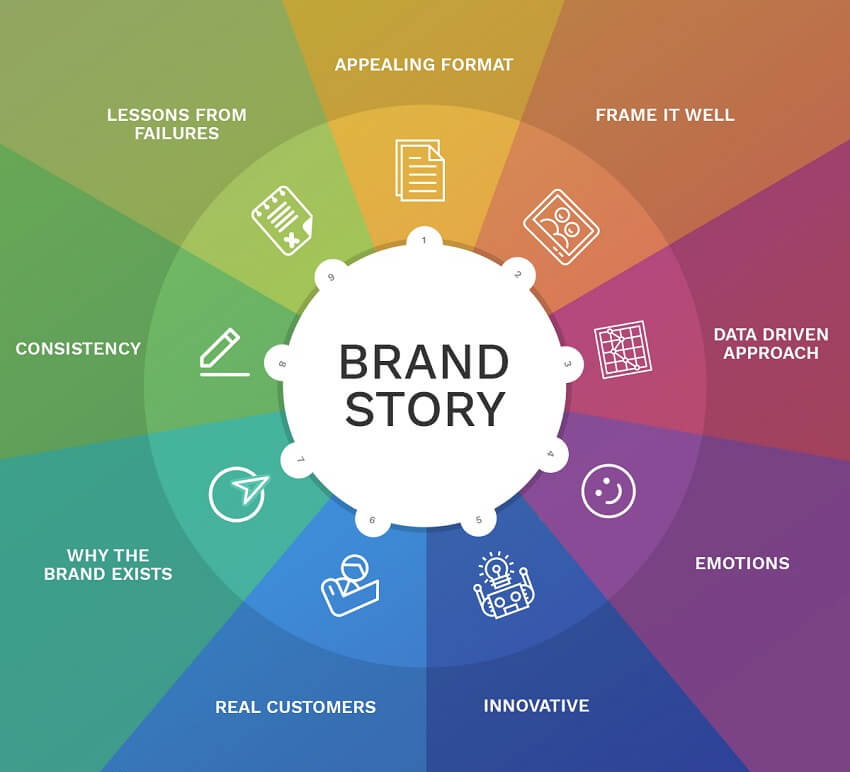The Power Of Storytelling: How Books Can Shape Your Brand

Once upon a time, in a world where brands were merely names and logos, there emerged a secret weapon that could transform the fate of any company. This powerful tool had been hidden in plain sight for centuries, tucked away within the pages of books. It was none other than the art of storytelling. Yes, you heard it right – those tales that captivated us as children hold an unimaginable power to shape your brand and take it to soaring heights. And now, with the brand terminal approaching faster than ever before, it’s crucial for businesses to harness the power of storytelling in order to stand out in an increasingly crowded marketplace.In this article, we will embark on a journey through the enchanted realms of literature, unraveling the secrets behind how stories can breathe life into your brand and capture the hearts and minds of your audience.
The Role Of Storytelling In Branding
Storytelling plays a crucial role in branding as it allows companies to create a connection with their audience on an emotional level. Instead of bombarding consumers with facts and figures, storytelling enables brands to communicate their values, mission, and purpose in a relatable and engaging way. By weaving narratives into their brand strategy, companies can humanize their products or services and evoke powerful emotions in the minds of consumers.
Moreover, storytelling helps brands differentiate themselves from their competitors. In today’s saturated market, simply showcasing the features and benefits of a product is not enough to stand out. Customers are looking for authentic experiences that align with their own values and beliefs. By telling stories that resonate with their target audience’s aspirations or challenges, brands can create a unique identity that sets them apart from others in the industry.
Additionally, storytelling has the power to build brand loyalty by engendering trust and fostering long-term relationships with customers. When businesses share stories about real people who have benefited from their products or services, it adds credibility and authenticity. Customers feel like they are part of something bigger than just a transaction; they become emotionally invested in the brand’s story and are more likely to remain loyal over time.
How Books Can Be Powerful Tools for Branding
Books have long been recognized as powerful tools for expressing and shaping a brand’s identity. In the digital age, where attention spans are fleeting and online content is often consumed in bite-sized pieces, the book stands out as a medium that demands time, focus, and commitment from its readers. By writing a book that aligns with their brand values and theme, companies can create an immersive experience for their audience, deepening their connection with the brand.
- One of the key ways books can be powerful tools for branding is by providing an opportunity for businesses to share their unique story. A well-crafted book allows brands to showcase their history, values, and mission in a way that captivates readers. This storytelling approach goes beyond traditional advertising methods and fosters a genuine connection between the brand and its target audience. By sharing compelling narratives through books, brands can humanize themselves and create an emotional bond with readers.
- Moreover, books offer unparalleled credibility in establishing thought leadership within an industry or niche market. When a company publishes a well-researched book on relevant topics related to its business or expertise, it positions itself as an authoritative figure within that field. The insights shared in these books not only showcase the brand’s knowledge but also establish trust among consumers who are more likely to view the brand as reliable when seeking information or products related to their interests or needs.
Conclusion:
In conclusion, harnessing the power of storytelling is an essential tool for anyone looking to shape their brand. The ability to craft a compelling narrative allows businesses and individuals alike to engage with their audience on a deeper level, forging connections that can lead to long-term loyalty and success. By understanding the fundamental elements of storytelling – like setting, conflict, and resolution – brands can create narratives that capture the imagination and resonate with their customers.
Moreover, storytelling has the unique ability to humanize a brand or organization. Through relatable characters and authentic narratives, stories can elicit empathy and emotional connections from audiences. This emotional connection not only helps build trust but also creates an opportunity for consumers to see themselves reflected in the brand’s story, leading to increased customer loyalty. From timeless classics to modern bestsellers, branding books have the ability to transport us into different worlds, evoke emotions, and leave a lasting impact.
So whether you are crafting an advertising campaign or shaping your personal brand, remember that behind every great brand is a powerful story waiting to be told. Embrace the art of storytelling and use it effectively; it will not only help you stand out in today’s crowded marketplace but also leave a lasting impact on your audience. As Maya Angelou once said: There is no greater agony than bearing an untold story inside you. So go forth and share your story with the world – you never know who might be listening.


Post Comment